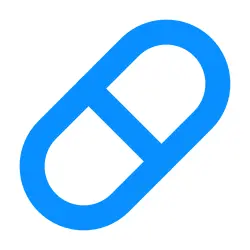Treatments (0)
Advice for Erectile Dysfunction
The main symptom of erectile dysfunction (ED) is difficulty achieving or maintaining an erection that is firm enough for sexual activity. Other symptoms may include:
-
Reduced sexual desire: Men with ED may experience a decrease in their interest in sexual activity or find it difficult to get aroused.
-
Difficulty achieving an erection: Men with ED may have difficulty achieving an erection or may find that their erections are not as firm as they used to be.
-
Difficulty maintaining an erection: Men with ED may be able to achieve an erection, but have difficulty maintaining it long enough to complete sexual activity.
-
Psychological symptoms: ED can cause psychological symptoms such as stress, anxiety, depression, and low self-esteem.
Erectile dysfunction (ED) is typically diagnosed through different ways such as medical history, physical exam, and laboratory tests. Here are the common steps taken in the diagnosis of ED:
-
Medical history: Your healthcare provider will likely ask you questions about your overall health, medical history, and sexual history. This will include questions about any medications you may be taking, your lifestyle habits, and any other symptoms you may be experiencing.
-
Physical exam: Your healthcare provider will perform a physical exam to check for any underlying physical causes of ED, such as hormonal imbalances, nerve damage, or circulation problems.
-
Laboratory tests: Your healthcare provider may order blood tests to check for underlying health conditions that can cause ED, such as diabetes, heart disease, or low testosterone levels.
-
Psychological evaluation: Your healthcare provider may ask about your mental health and perform a psychological evaluation to determine if any underlying psychological issues may be contributing to your ED.
In some cases, additional testing may be necessary to determine the cause of ED, such as imaging tests to check for blood flow or nerve function in the penis.
Erectile Dysfunction FAQs (5)
ED can have various causes, including physical, psychological, or a combination of both. Physical causes may include conditions such as diabetes, high blood pressure, heart disease, nerve damage, or hormonal imbalances. Psychological causes may include stress, anxiety, depression, or relationship problems.
ED can have a significant impact on a man's quality of life, as well as his mental health and relationships. Treatment options may include medications such as Invicorp, as well as other oral medications, penile implants, vacuum pumps, or psychological counseling. It is important for men who experience ED to speak with their healthcare provider to determine the underlying cause and appropriate treatment options.
The treatment of erectile dysfunction (ED) depends on the underlying cause and may involve a combination of approaches. Here are some common treatment options for ED:
-
Medications: Oral medications, such as sildenafil (Viagra), tadalafil (Cialis), and vardenafil (Levitra), are often prescribed to treat ED. These drugs work by increasing blood flow to the penis, causing an erection. Injectable medications, such as Invicorp, may also be used.
-
Vacuum devices: Vacuum pumps, also known as vacuum constriction devices, are used to create an erection by drawing blood into the penis.
-
Penile implants: Penile implants are surgically placed devices that can provide a man with an erection when desired.
-
Lifestyle changes: Making lifestyle changes such as losing weight, exercising regularly, quitting smoking, and reducing alcohol consumption may help improve ED symptoms in some men.
-
Psychological counseling: If ED is caused by psychological factors such as stress, anxiety, or depression, counseling or therapy may be helpful.
Yes, there are several non-oral treatments for erectile dysfunction (ED), including:
-
Injectables: Medications such as alprostadil or Invicorp can be injected into the side of the penis to produce an erection.
-
Vacuum devices: Vacuum pumps, also known as vacuum constriction devices, are used to create an erection by drawing blood into the penis.
-
Penile implants: Penile implants are surgically placed devices that can provide a man with an erection when desired.
-
Shockwave therapy: This non-invasive therapy involves using low-intensity shockwaves to stimulate blood flow to the penis and promote the growth of new blood vessels.
-
Penile rehabilitation: This involves a combination of therapies designed to improve blood flow to the penis, such as medication, vacuum devices, and injections, and may be used after prostate surgery or other medical procedures that can cause ED.
Whether or not you can take medication for erectile dysfunction (ED) if you have other health conditions depends on the specific medications and health conditions involved.
It's important to discuss any medical conditions you have with your healthcare provider before starting any ED treatment. This includes conditions such as high blood pressure, heart disease, diabetes, liver or kidney disease, and others, as they may affect your ability to take certain medications or may require dose adjustments.
For example, some ED medications can interact with certain medications used to treat heart disease or high blood pressure and cause a dangerous drop in blood pressure. Similarly, medications such as nitrates, which are commonly used to treat heart conditions, should not be taken with ED medications as they can cause a dangerous drop in blood pressure.
Whether or not you can take medication for erectile dysfunction (ED) with your other medications depends on the specific medications and health conditions involved.
It's important to discuss any medications you are taking with your healthcare provider before starting any ED treatment. This includes prescription medications, over-the-counter medications, and supplements, as they may interact with ED medications.
Some medications used to treat ED can interact with certain medications used to treat heart disease or high blood pressure and cause a dangerous drop in blood pressure. Similarly, medications such as nitrates, which are commonly used to treat heart conditions, should not be taken with ED medications as they can cause a dangerous drop in blood pressure.

